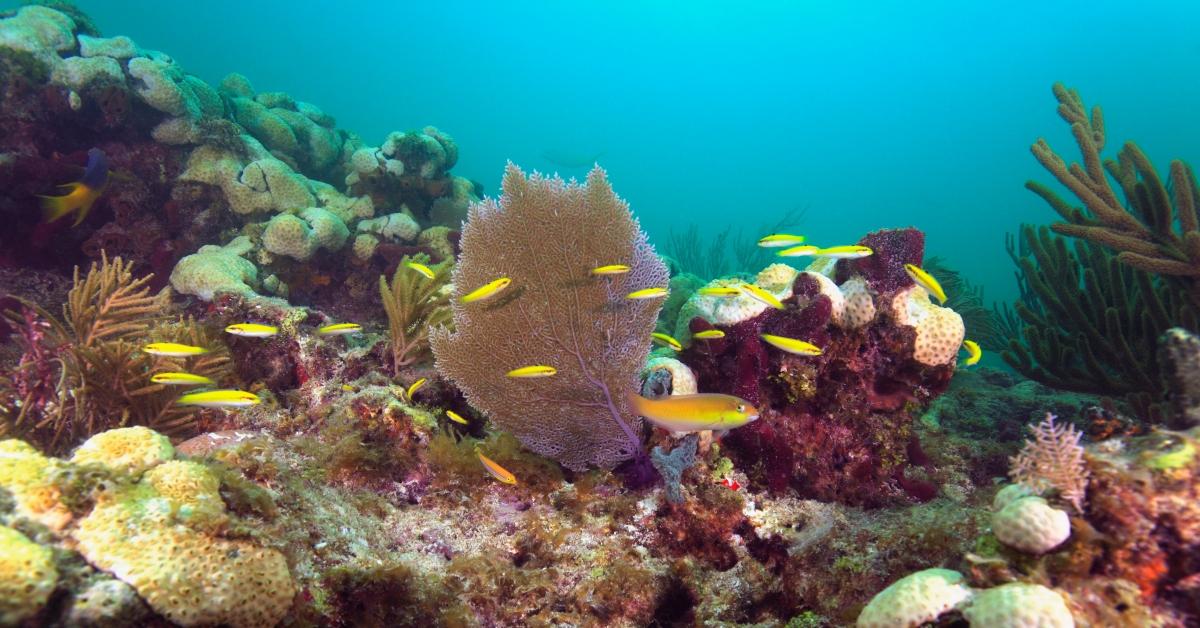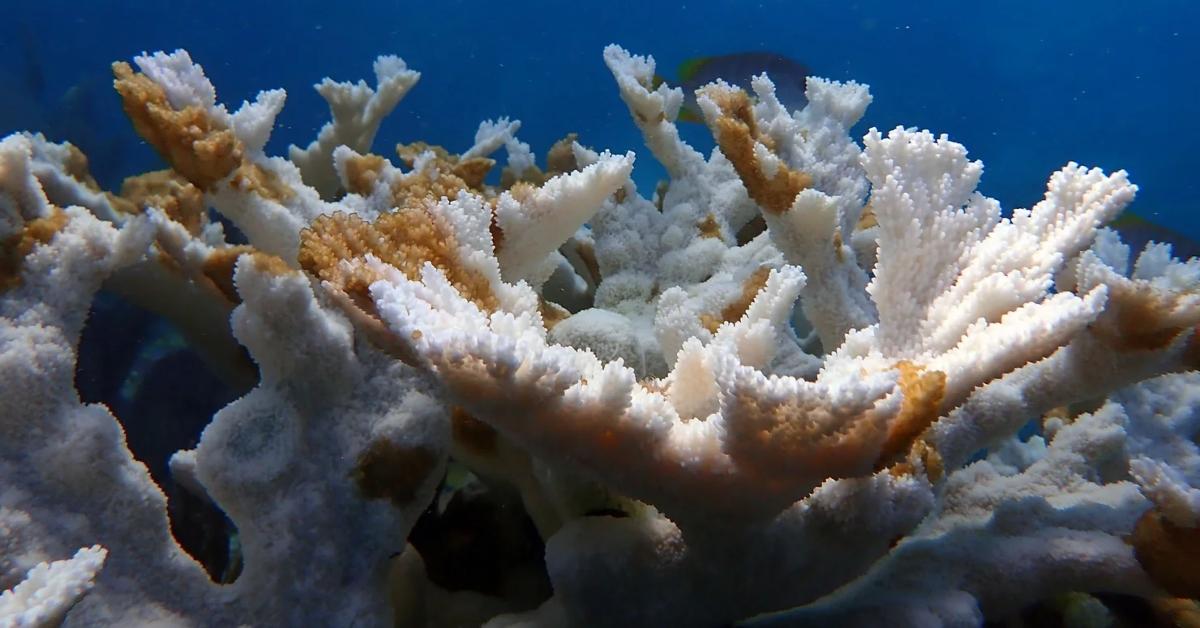Florida Keys' Water Temperatures Lead To "Large Scale Heat Stress" and Coral Bleaching
Updated Aug. 23 2023, 1:02 p.m. ET

Marine biologists are trying to save coral off the coast of Florida after water temperatures in Manatee Bay in the Florida Keys reached over 100 degrees. A Florida coral bleaching event caused by the high water temperatures is killing the coral. Coral bleaching is a severe issue because once the reefs die, they rarely come back, crumbling an ecosystem that humans and marine life rely on for survival.
The Associated Press (AP) reported on July 26, 2023, that water temperatures hit "hot tub levels" for two days in a row, potentially reaching the "hottest seawater ever measured."
Then, on Aug. 17, 2023, the AP reported that the coral reef bleaching is "unprecedented and potentially deadly" because of rising ocean temperatures — here's what to know.

Manatee Bay in Florida Keys' water temperature may be the hottest on record.
According to the National Weather Service, a buoy at Manatee Bay in the Florida Keys reached 101.1 degrees on July 24, 2023 possibly setting the record for the highest water temperature ever recorded, the AP reports.
“This is a hot tub. I like my hot tub around 100, 101. That’s what was recorded yesterday,” Yale Climate Connections meteorologist Jeff Masters told the AP.
Since early July, water temperatures have hovered around 92 to 97 degrees, as per NBC News. The normal temperature for the water is about 85 degrees. The high water temperatures may be due to air temperatures in the high 90s, weak winds, strong sunlight, and silty water.
Official records on water temperatures aren’t kept; however, a 2020 study showed the previous highest water temperature was recorded at 99.7 degrees in Kuwait Bay in July 2020, as noted by the AP.
High water temperatures have caused a Florida coral bleaching event.
The hot water temperatures in Florida have raised concerns about the coral reefs in the area. According to the National Oceanic and Atmospheric Administration (NOAA), when seawater temperatures get too hot, coral expels the algae living in their tissues, causing them to turn white. This is called “bleaching,” and it can eventually kill the coral.

CNN reported in July 2023 that multiple reefs around the Florida Keys are “completely bleached or dead” due to the high water temperatures. Researchers with the Coral Restoration Foundation found 100 percent coral mortality in the Sombrero Reef of the Florida Keys National Marine Sanctuary. Almost all the coral in Looe Key Nursery in the Lower Keys has also died, said representatives with the Coral Restoration Foundation.
According to a NOAA report, as of Aug. 17, coral in and around the Caribbean basin, including the Gulf of Mexico and the Florida Keys, is suffering from "large-scale heat stress and coral bleaching." Five countries have confirmed coral bleaching, including Mexico, Columbia, Panama, Costa Rica, and El Salvador.
Florida, Puerto Rico, Mexico, the U.S. Virgin Islands, Panama, Belize, and Cuba have also reported coral bleaching.
In August 2023, NOAA also reported that all coral in the Florida Keys are at Alert Level 2 for bleaching conditions, which means "severe, widespread bleaching and significant mortality are likely." While scientists are racing to find solutions for this horrific mass coral bleaching, it's important to know what is behind it in the first place: climate change.
Climate change is to blame for coral bleaching.
Like most natural issues impacting our world today, climate change is the leading cause of coral bleaching, according to the World Wildlife Fund. A change in water temperature, like those experienced in Florida and caused by climate change, is responsible for coral bleaching. However, coral can also bleach when exposed to pollution, extremely low tides, or too much sunlight.
This article, originally published on July 26, 2023, has been updated.